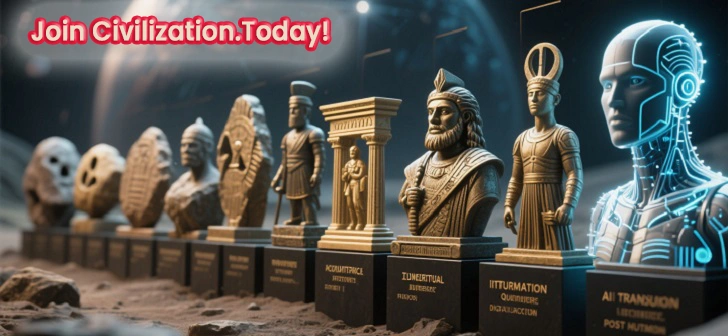In the last decade, Quantum Computing has evolved from a niche scientific curiosity into one of the most disruptive technologies of the 21st century. It promises to solve problems beyond the reach of classical computers, redefine industries, and potentially reshape the global balance of power. But along with its groundbreaking potential come serious risks—from cybersecurity threats to ethical dilemmas.
In this article, we’ll explore what Quantum Computing is, the opportunities it offers, and the risks we must prepare for as we enter this new technological frontier.
What is Quantum Computing?
At its core, Quantum Computing leverages the principles of quantum mechanics, a branch of physics that deals with the strange behavior of particles at the subatomic level. Unlike traditional computers that store information as bits (0 or 1), quantum computers use qubits, which can exist in multiple states simultaneously through a property called superposition.
Even more fascinating is entanglement, where qubits become interconnected, meaning the state of one affects the other instantly, regardless of distance. These phenomena allow quantum computers to process vast amounts of information in parallel, making them exponentially more powerful for certain tasks.
Opportunities Presented by Quantum Computing
1. Unprecedented Processing Power
Classical computers struggle with complex calculations that involve massive datasets or intricate simulations. Quantum computers could solve these problems in minutes or seconds. For example, Google’s quantum processor, Sycamore, claimed in 2019 to perform a calculation in 200 seconds that would take a supercomputer 10,000 years.
2. Revolutionizing Drug Discovery
Quantum Computing can simulate molecular interactions with incredible precision, enabling pharmaceutical companies to design new drugs faster and more accurately. Diseases like cancer or Alzheimer’s could see breakthroughs that were previously unimaginable.
3. Transforming Artificial Intelligence
Machine learning models rely heavily on optimization and pattern recognition. Quantum algorithms could train AI systems faster and more efficiently, pushing advancements in self-driving cars, language processing, and predictive analytics.
4. Optimizing Complex Systems
From global supply chains to financial portfolios, many industries face problems with countless possible configurations. Quantum Computing can evaluate multiple solutions at once, identifying optimal strategies in logistics, manufacturing, and resource allocation.
5. Climate Change Solutions
By modeling climate systems and energy processes at the quantum level, scientists could develop more efficient renewable energy sources and better predict environmental changes.
The Risks of Quantum Computing
1. Cybersecurity Threats
One of the most discussed risks is the potential for quantum computers to break current encryption methods. Today’s online security largely depends on cryptographic algorithms that would be trivial for a sufficiently advanced quantum computer to crack. This could jeopardize banking, government communications, and personal data security.
2. Geopolitical Power Shifts
Nations that master Quantum Computing first could gain a massive strategic advantage—economically, militarily, and technologically. This could fuel an international “quantum arms race”, intensifying political tensions.
3. Economic Disruption
Industries that fail to adapt to quantum advancements may be left behind. Traditional cybersecurity, certain data analysis businesses, and even some AI companies could face obsolescence.
4. Ethical and Privacy Concerns
With great computing power comes the temptation to misuse it. From mass surveillance to unethical AI applications, Quantum Computing could amplify existing ethical challenges in technology.
5. High Costs and Accessibility Gaps
Building and maintaining quantum computers is extremely expensive, requiring ultra-cold environments and advanced engineering. This could result in a concentration of power among a few corporations or governments, widening the global tech divide.
Preparing for the Quantum Era
The rise of Quantum Computing doesn’t mean we’re powerless in the face of its risks. Here’s how governments, businesses, and individuals can prepare:
- Invest in Post-Quantum Cryptography
Researchers are developing encryption algorithms resistant to quantum attacks, ensuring data remains secure even in a quantum-powered future. - International Collaboration
Rather than fueling competition, nations could collaborate on ethical guidelines, much like existing nuclear or AI treaties. - Quantum Education and Workforce Development
Training the next generation of scientists and engineers in quantum principles will ensure a broader, more diverse talent pool. - Public Awareness
Understanding what Quantum Computing can and can’t do will prevent misinformation and promote informed decision-making.
Conclusion
Quantum Computing is not just the next step in technological evolution—it’s a giant leap. Its potential to revolutionize medicine, climate science, AI, and countless other fields is immense. Yet, without careful planning and ethical safeguards, the same technology could undermine global security, disrupt economies, and exacerbate inequality.
We are standing at the threshold of a new computational era. The choices we make today will determine whether Quantum Computing becomes a force for unprecedented progress—or a Pandora’s box we struggle to contain.




